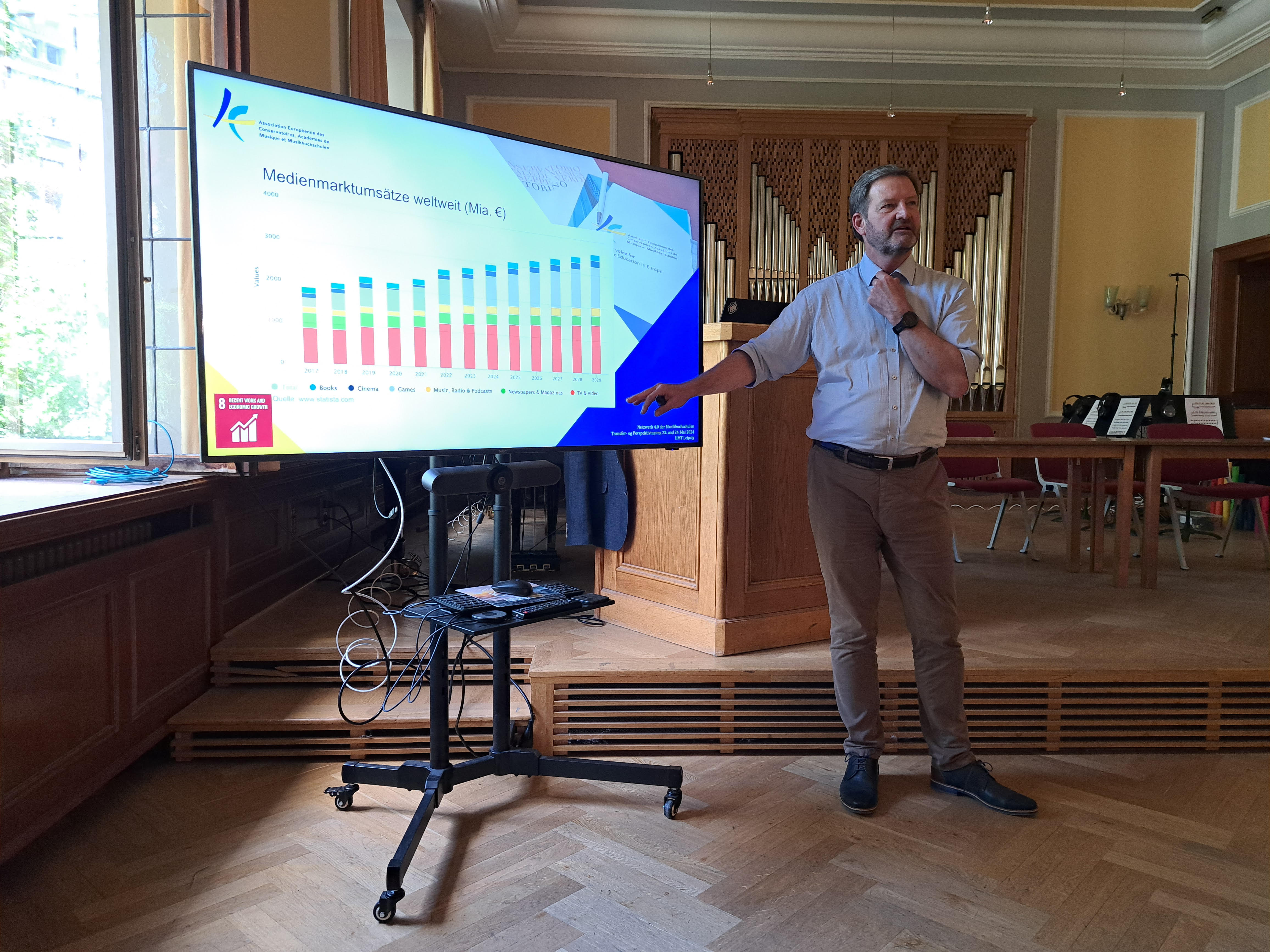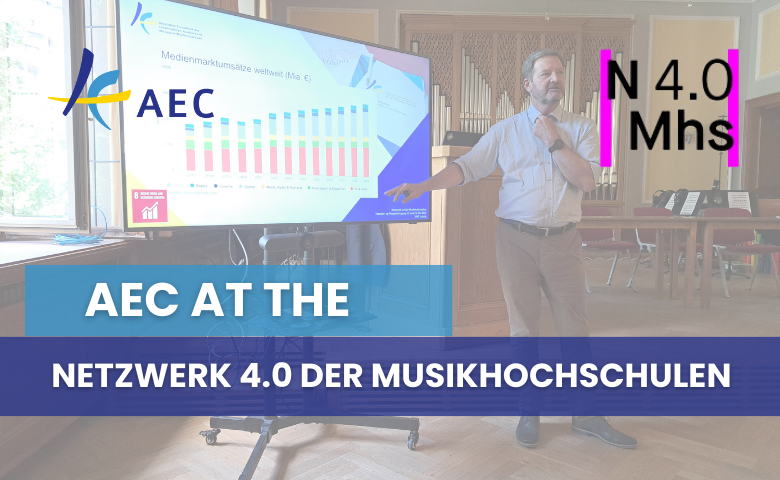Under the title: “Musical-digital awakening – How higher music education with AI can create a creative and sustainable future for our musical life and society as a whole“, AEC Executive Director Finn Schumacker was invited to deliver a keynote at an annual meeting of Netzwerk 4.0 der Musikhochschulen in Leipzig in May 2024.
He touched on both the benefits and risks of artificial intelligence and asked the audience for their opinion on whether the future with AI is bright or dark. The world’s first legislation in the field, the EU’s new AI Act, was discussed, including the risk-based approach and the relatively long period it will take to introduce the legislation at the national level.
AEC sees three equal perspectives in the use of AI in higher music education institutions: a creative, a structural and an administrative use of the technology. Students and teachers have already been experimenting with the use of AI in the creative processes for several years, both to support composition and arrangement, but also to develop new interdisciplinary expressions.
Teaching courses that adjust themselves to the student’s strengths and weaknesses is an area that is undergoing strong development, and to ease administrative burdens around reports, preparation of diplomas and many other functions, AI will be of great importance in the coming years.

Photo Credit: ©Netzwerk 4.0
However, AI also comes with a range of questions to be addressed: GDPR, data protection, and ethical use of AI are just some of the topics where satisfactory solutions must be found.
A very big topic that AEC is in dialogue with its partners about is the question of which material the various AI solutions are trained on. Here there are different opinions between the tech giants and EU politicians about what the law actually says. This concerns an exception to the requirement for compensation for the use of data for so-called data mining, which allows researchers to use copyright-protected material for scientific work, but where such material is nevertheless used in a commercial context by others.
There is also an increasing focus on the energy consumption caused by AI. When a question is asked in e.g. ChatGPT, it requires considerable computer power to answer. There is disagreement about the measurement methods, but there is no doubt that this side of the technology must be clarified and recognized in the same way as other power-intensive technologies in the energy-conscious society of the future.
In his closing remarks, Finn Schumacker emphasized the managerial perspective. A successful implementation of AI in a higher music education institution requires leadership involvement from the beginning.
The responsibility for the development of AI at the institution cannot be delegated to interested teachers and students. There is a need for a clear anchoring at the management level which defines a strategy and sets the framework so that resource consumption both in terms of personnel and finances can be carefully planned.
In addition, there is a need for systematic competence development of the staff, and finally, successful work with AI is closely related to the establishment of a common understanding among all actors of what the purpose of the use of AI is, a shared culture resting on a language that allows concerns and challenges to be shared in the same way as successes.
Coming back to his initial question to the audience regarding the future with AI being dark og bright, the answers to the Slido showed a partly clouded sky acknowledging the challenges, but certainly also seeing a promising future for the musical landscape enriched with the powers of artificial intelligence.
More about the Netzwerk 4.0
The Network has been operating since August 2021, with the Detmold University of Music as the host university. It is the largest joint project in Germany in terms of membership in the programme “Strengthening university teaching through digitalisation. “
Thanks to an extension of the original funding phase by the Foundation for Innovation in University Teaching the project has been prolonged until December 31, 2025.
The Network 4.0 sees itself as a strategic alliance. 18 of the 24 music colleges in Germany with a total of around 13,500 students are involved in it to jointly exploit the potential of digitalisation for teaching and studying at higher music education institutions.






